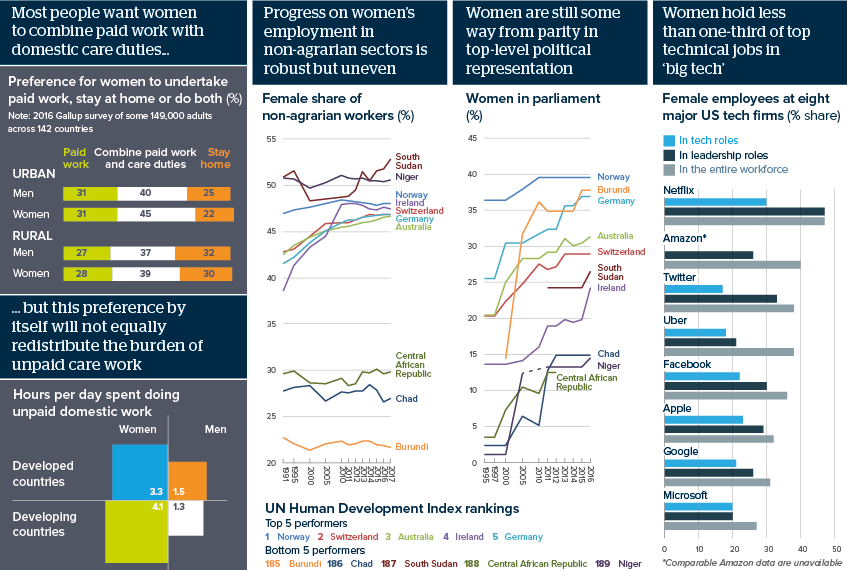Gender equality is a distant but achievable goal
There has been a robust rise in women’s access to non-agrarian employment and top political offices
Source: Gallup World Poll; UN Human Development Index; company reports; Oxford Analytica
Outlook
The UN has prioritised gender equality as one of its 17 Sustainable Development Goals for 2030, attaching nine targets that exclusively focus on gender issues ranging from violence and reproductive freedoms to access to economic resources and public life. Yet whether at home, university, workplace or parliament, women have yet to achieve parity with men anywhere globally.
Progress varies -- and will continue to vary -- by region and country. It will also differ by issue: due to entrenched socio-cultural biases and norms, tackling women’s access to decent, paid work and higher education, for example, is proving easier than reducing gender-based violence and women’s disproportionate domestic care burden.
Impacts
- Regular, salaried work best advances women’s empowerment, but the gig economy is taking work in the opposite direction.
- Nordic countries will lead on gender equality, but some policies such as those on maternity leave remain controversial.
- Developing countries, especially of Africa and South Asia, are improving women’s status, but from a low base.
See also
- Larger health and care sectors would narrow gender gap - Dec 20, 2019
- New Egypt divorce bills should bolster women’s rights - Oct 31, 2019
- Gender infrastructure gaps galvanise diverse partners - Sep 24, 2019
- Gender gap in technology will take decades to trim - Sep 10, 2019
- Gender issues run deep in Latin America - Mar 9, 2017
- More graphic analysis
